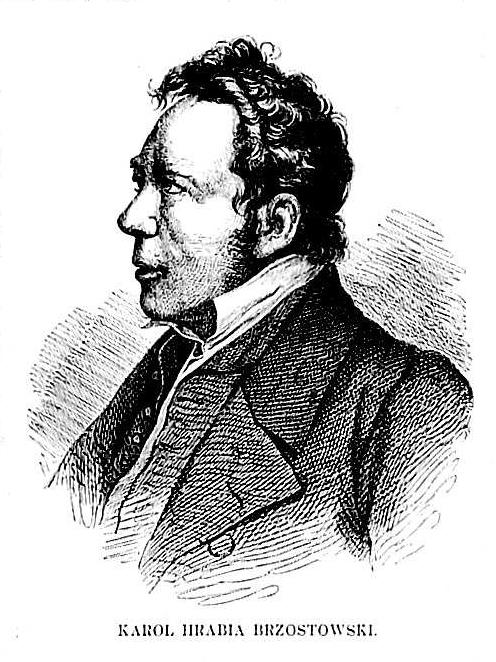Karol Brzostowski, who was descended from a distinguished noble family from the Vilnius region, wanted to pursue a military career, but his health did not allow him to do so. In 1819, he settled in the family estate of Stabinsk, where for the next 35 years he was involved in his work on his estate, which was called the Stabinsk Republic. He suffered from a heart condition that he was unable to cure. 168 years ago, the creator of the Stabinsk Republic died.
Brzostowski decided to reform the estate near Stabinsk, near
Augustów (today’s north-eastern Poland). The extensive estate was in debt and its inhabitants lived in poverty and drunkenness. The owner, therefore, decided to change the thinking and behaviour of the peasants, to teach them to work diligently and eradicate addictions. He abolished serfdom and granted the peasants personal freedom and the right to lease land. He introduced rural self-government, an assembly of village leaders who judged disputes on the basis of a code with a clear set of rules. He considered that every man had to earn his own living and get an education, so he took care of the peasants’ education – he set up schools and almost completely eradicated illiteracy in his domains. He also established allowances for people unable to support themselves, set up pharmacies, provided medical assistance and established a savings and loan fund.
In addition, he popularised the cultivation of potatoes, fodder beet, clover, hops and cabbage. He constructed agricultural machinery (including a mechanical milking machine and a potato peeling machine), the production of which he developed in an established factory. He built a brickyard, a sawmill, a water mill, a windmill and a tannery, as well as steelworks, which became well-known in Russia at the time. Brzostowski’s plant was the first in Poland to be connected by a telegraph line. He supplied iron castings for the construction of the Augustow Canal, and manufactured kitchen utensils, mortars, candlesticks, statuettes, and cemetery monuments (which still exist today in the surrounding cemeteries).
Before his death, the reformer made a will, giving peasants the right to own land. The will established the Agricultural and Industrial Institution, which was to continue this work and take care of its permanence (it survived until 1949). Brzostowski, one of Poland’s most prominent social and economic activists, caused the inhabitants of Stabinsk and the surrounding area to be regarded as enlightened farmers to this day.





